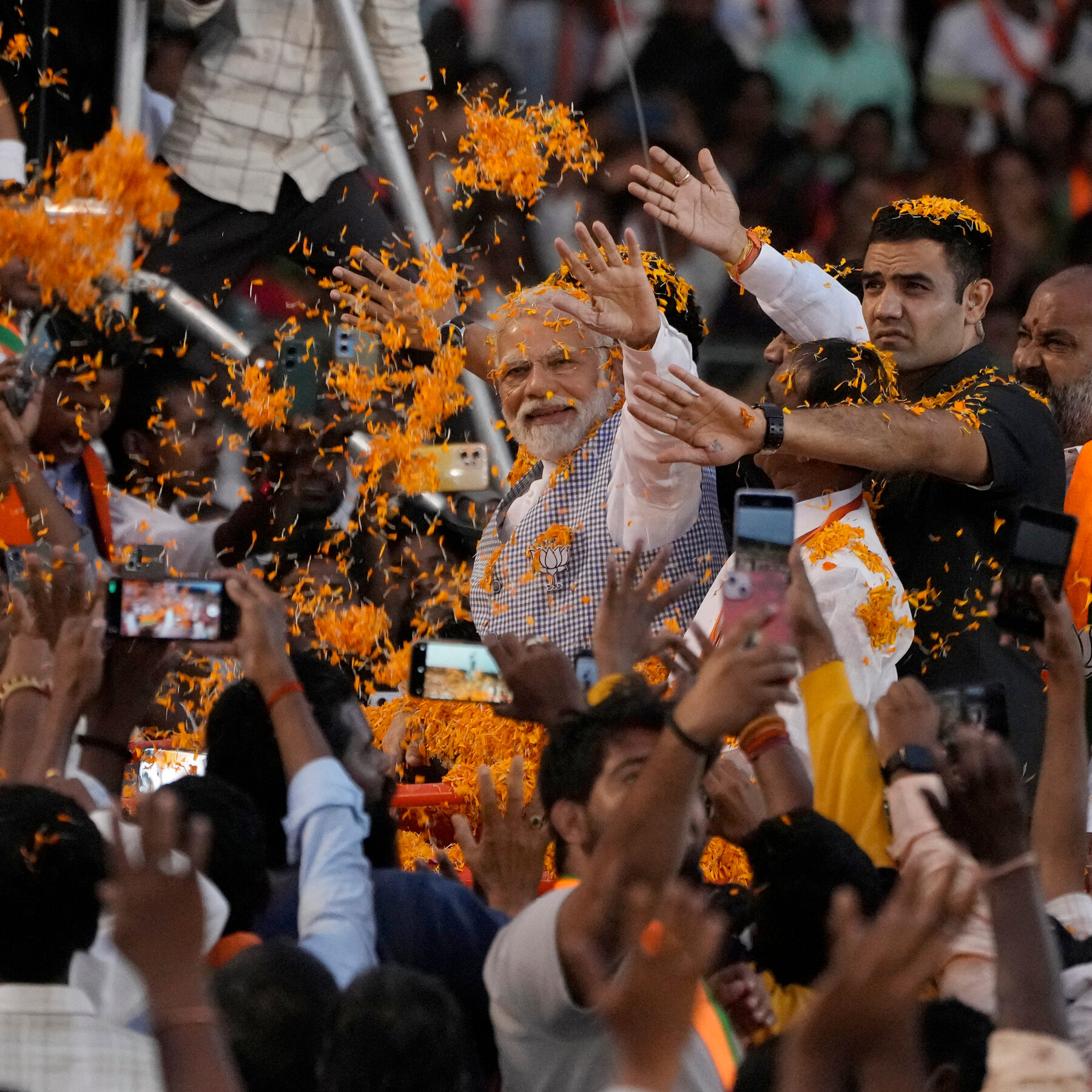
Source: New York Times/ Associated Press
Nidaa Shahid
With the Indian election season in full swing, the incumbent Prime Minister Narendra Modi has once again played the Pakistan card. This time, it is marked by a bold assertion regarding Pakistan’s nuclear capabilities. Addressing a public meeting, PM Modi took a jibe at Pakistan’s economy and said while the “country had atomic bombs,” it was looking for someone to sell them but was unable to do so due to “poor quality.” This remark was made in response to a statement given by Congress leader and former diplomat, Mr. Mani Shankar Ayer, who had advised India to work towards a resumption of dialogue with Pakistan as “it is a respected nation that also possesses an atom bomb.”
In ire of the Congress party as well as Pakistan, PM Modi responded by stating that “time and again, Congress tries to scare its own country. They say, ‘be careful, Pakistan has the atomic bomb. These people [Pakistan], who are virtually dead, are trying to kill the soul of the country.” He further said the current condition of Pakistan is such that it is looking for buyers for its nuclear bombs, but no one wants to buy these weapons as they are of low quality.
Given past precedents, such remarks are quite expected as the Indian Prime Minister has a habit of dishing out provocative statements during the election season. Before the 2019 election, on the heels of the so-called airstrike in Balakot, Modi had made similar kinds of irresponsible assertions about nuclear weapons, stating that Indian nuclear weapons were not ornaments or firecrackers meant for celebrating Dewali.
During the ongoing election, however, these remarks by the PM seem to be serving a bigger purpose than just whipping up anti-Pakistan rhetoric aimed at rekindling nationalist fervor. If anything, by invoking Pakistan’s nuclear arsenal, Modi is tapping into the deeply ingrained security concerns of Indian voters, hoping to consolidate his support base.
Throughout his tenure, PM Modi has consistently utilized the specter of Pakistan to bolster his image as a strong and decisive leader, especially during times of political uncertainty. However, beneath the surface, there lies a subtle yet discernible pattern of deflecting attention from pressing domestic issues. As this election unfolds, encompassing over 900 million registered voters—equivalent to a staggering 10% of the world’s population—critical challenges that directly impact the lives of millions, such as unemployment, economic slowdown, and agrarian distress, persist. Yet, rather than addressing these grave issues, the ruling party has created a discourse that continues to revolve around national security.
Let’s consider the issue of unemployment. Reports indicate that India’s unemployment rate rose to 8.1% in April 2024. Despite enjoying the tag of the fastest growing economy in the world, the government has failed to generate enough jobs for its large and burgeoning population, 65 % of which is below the age of thirty-five. Hardly any concrete action has been taken to address this crisis, with the main focus being on projecting an image of strength in the face of perceived external threats.
Similarly, the economic slowdown has remained a persistent concern in PM Modi’s tenure despite economic uplift being a major agenda point in all election manifestos since 2014. While other countries have implemented comprehensive reform agendas to revive their economies, India has been criticized for its inadequate response.
Furthermore, agrarian distress continues to badly afflict farmers across the country. The contentious farm laws introduced by the Modi government sparked widespread protests in 2020 and again in Feb 2024, which are still ongoing. The Congress and some of the other parties have put the farmer’s agenda in their manifestos. However; the ruling party has been steadfast in its refusal to acknowledge their demands. It refuses to give even an inch on this issue despite the risk of losing support of the massive farmer population of India, especially at a time when the PM is seeking a third term. By accentuating national security concerns, the government continues to attempt to shift the focus away from the plight of farmers and the need for agrarian reforms.
Therefore, in essence, Modi’s reliance on the Pakistan card is not merely a political slogan but also a deliberate tactic to deflect attention from the failures of his government on critical domestic issues. As the election process is well underway, it is imperative for voters to see through this smokescreen and demand accountability on matters that directly impact their well-being and livelihoods.
Moreover, Modi’s assertion about Pakistan’s nuclear capabilities raises questions about the efficacy of India’s foreign policy approach towards its neighbours. Instead of fostering dialogue and confidence-building measures, such incendiary rhetoric only serves to escalate tensions in an already volatile region. As the election season heats up, it becomes imperative for Indian voters to scrutinize the motives behind such statements. The motive, it must be stressed, is anything but to safeguard the interests of India and vulnerable segments living there.
Nidaa Shahid is a Senior Researcher, Center for Aerospace and Security Studies, Lahore.
The views expressed in the article are the author’s own and do not necessarily reflect those of Pakistan Politico.




